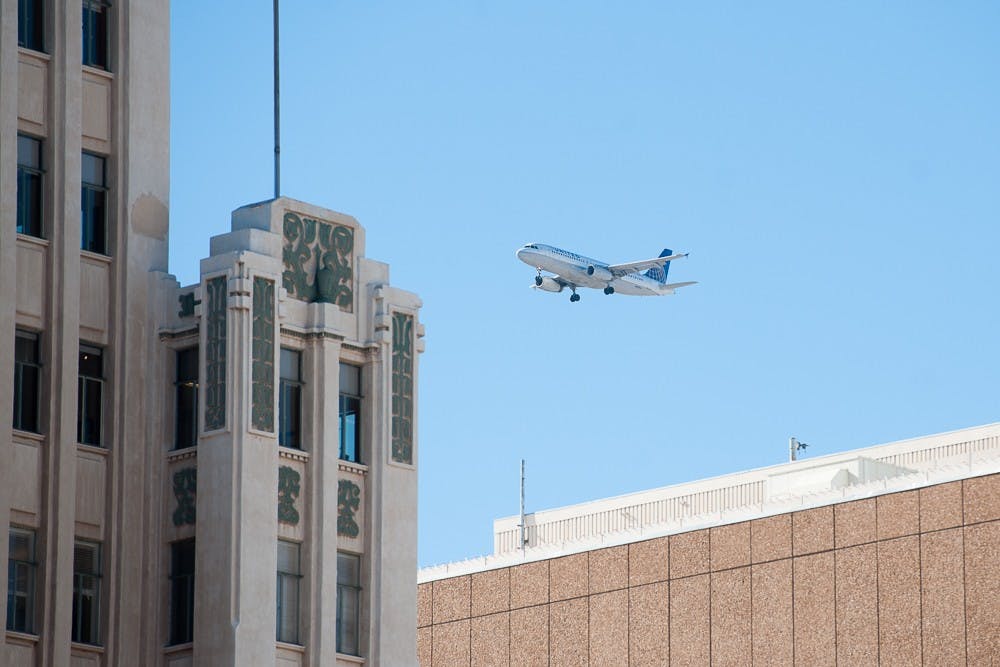It has been over two weeks since nine Chinese ASU students were detained at Los Angeles International Airport and denied entry after U.S. Customs and Border Protection officers deemed the students "inadmissible."
While the students were detained, the officers reviewed their electronic devices before denying their entry. Authorities also gave little reasoning for blocking their admission.
"There’s over 60 grounds of inadmissibility," Michael Neufeld, an immigration lawyer at Neufeld Law Firm, said. "The most likely ground they were denied under was some form of fraud or failing to previously follow the conditions of prior admission."
Neufeld added that "it's a really tricky situation" when people arrive in the U.S.
"You don’t have a right to counsel in that situation they don’t have to let you call a lawyer (because) you’re technically not in the country," he said.
The incident comes amid an escalating trade war between the U.S and China. Additionally, protests are occurring in Hong Kong and are being funded by the National Endowment for Democracy, an American "soft power" tool for regime change abroad.
These efforts by the U.S. point toward a growing anti-Chinese sentiment manifesting itself nationwide.The timing makes it seem as if these students are being penalized for simply coming from China during a time of U.S hostility toward the nation.
Another example of this growing anti-Chinese sentiment is that ASU, alongside 15 other universities, closed its Confucius Institute. The institute is still present at UA. The institute was known for being a resource that promoted traditional Chinese language and culture.
The Confucius Institute is run by the Chinese government, and for this reason some students even advocated for its closing on the premise that China is a “mass human rights violator."
Read more: Opinion: It's time for ASU to reject the Confucius Institute
The closing of this resource and the denied admission of these students from China can either be a coincidence or a real manifestation of a growing anti-Chinese sentiment.
This is not the first time the U.S. has denied re-entry to students coming from nations it has sour foreign relations with.
The U.S. also sent back a Palestinian Harvard student and President Crow described the ASU situation to be oddly similar to the Chinese students incident. The Palestinian student in question also had their privacy violated during a time of tension with the U.S., as U.S. officials reviewed their personal electronics.
According to Neufeld, Customs and Border Protection, CBP, is allowed to search through personal electronics without a warrant. This is something they have been doing in the past couple of years.
"That’s really scary," he said. "The idea that the government can be going through your phone is not fun.”
It is not enough to simply have the students continue their education in China through ASU online courses, as they are currently.
Their freedom is being harshly suppressed by the U.S government in denying them the education that they are paying for.
"If you have an immigration attorney, keep a signed G-28 on you and hope that you will get a CBP agent who will let you call your lawyer," Neufeld said. "Keep all your documents with you, try to stay calm and not be belligerent with the officers."
Regardless of whatever affiliations the Chinese students have, as tensions are rising between the two countries, the students deserve to continue their education in the United States.
The University must also step up in assuring that something like this does not happen again.
In the case that admission is not permitted for Chinese or even Palestinian students — their rights must be protected. The U.S. government should bring back and allow the Chinese students to pursue their education at ASU.
Reach the columnist at amisais@asu.edu or follow @comradealexia on Twitter.
Editor’s note: The opinions presented in this column are the author’s and do not imply any endorsement from The State Press or its editors.
Want to join the conversation? Send an email to opiniondesk.statepress@gmail.com. Keep letters under 500 words and be sure to include your university affiliation. Anonymity will not be granted.
Like The State Press on Facebook and follow @statepress on Twitter.




